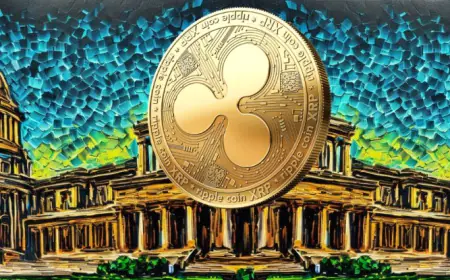Bitcoin Surges Past $28K in Response to CPI
Bitcoin surges past $28K in response to CPI. Stay up-to-date on the latest news and trends in the cryptocurrency market. Learn about the factors driving Bitcoin's price increase and how it may impact the wider economy. Follow our expert analysis and insights on the cryptocurrency market.

Bitcoin has experienced a surge in price, surpassing $28,000, in response to the latest US Consumer Price Index (CPI) data. This significant increase has generated a buzz in the cryptocurrency market, and many investors are wondering what factors are driving this upward trend. In this article, we will explore the reasons behind Bitcoin's recent price surge and what it could mean for the wider economy. We will also provide expert analysis and insights on the current state of the cryptocurrency market.
Understanding the CPI and Its Impact on Bitcoin
The Consumer Price Index (CPI) is a measure of the average change over time in the prices paid by urban consumers for a basket of goods and services. This index is used by the US government to track inflation and assess the health of the economy.
The latest CPI data, released in June 2021, revealed a significant increase in consumer prices, with inflation reaching its highest level in over a decade. This has caused concern among investors and economists alike, as inflation can have a negative impact on the value of traditional assets such as stocks and bonds.
However, the latest CPI data has also had a positive effect on Bitcoin. The cryptocurrency has traditionally been viewed as a hedge against inflation, as it is not subject to the same monetary policies as traditional currencies. As a result, many investors have turned to Bitcoin as a way to protect their wealth against the potential devaluation of traditional assets in the face of rising inflation.
This trend is reflected in Bitcoin's recent price surge, which has seen the cryptocurrency rise above $28,000 per unit. This is a significant increase from its value just a few months ago and has generated excitement and optimism among Bitcoin investors.
In conclusion, the recent surge in Bitcoin's price can be attributed, at least in part, to the latest CPI data and the resulting concerns over inflation. As investors continue to seek out alternative ways to protect their wealth, it is likely that Bitcoin and other cryptocurrencies will continue to attract interest and investment in the coming months.
"Bitcoin has traditionally been viewed as a hedge against inflation, as it is not subject to the same monetary policies as traditional currencies." This statement highlights the unique nature of Bitcoin and its potential as a store of value in times of economic uncertainty. It also underscores the growing interest in cryptocurrencies as a viable investment option, particularly in the face of rising inflation and other economic challenges.
Other Factors Driving Bitcoin's Price Increase
While the latest CPI data has certainly played a role in Bitcoin's recent price surge, there are other factors at play as well. These include:
-
Increased institutional adoption: Over the past year, there has been a significant increase in institutional investment in Bitcoin and other cryptocurrencies. This has been driven by a growing recognition of the potential of digital assets as a store of value and a hedge against inflation.
-
Greater mainstream acceptance: Bitcoin and other cryptocurrencies are becoming increasingly accepted by mainstream retailers and service providers, which has helped to boost their value and legitimacy in the eyes of investors.
-
Halving of Bitcoin mining rewards: In May 2020, the reward for mining Bitcoin was reduced by half, which has made it more difficult and expensive to obtain new units of the cryptocurrency. This has helped to reduce the supply of Bitcoin and increase its value.
-
Investor sentiment: As with any asset, investor sentiment plays a significant role in determining the value of Bitcoin. As more investors become interested in Bitcoin and other cryptocurrencies, their demand for these assets increases, driving up their price.
In conclusion, while the latest CPI data has certainly contributed to Bitcoin's recent price surge, there are a range of other factors driving the cryptocurrency's value. As the cryptocurrency market continues to evolve and mature, it is likely that we will see further changes in the factors driving Bitcoin's price, making it an exciting and dynamic area for investors to watch.
Potential Impacts of Bitcoin's Price Increase
The recent surge in Bitcoin's price has significant potential impacts on both the cryptocurrency market and the wider economy. Here are some of the potential effects:
-
Increased investment in cryptocurrencies: As Bitcoin's value continues to rise, more investors may be drawn to the cryptocurrency market, increasing overall investment in digital assets.
-
Greater mainstream acceptance: As Bitcoin becomes more valuable, it may become more widely accepted as a legitimate asset by mainstream investors, retailers, and service providers.
-
Volatility: While Bitcoin's recent price surge has generated excitement among investors, it has also highlighted the volatile nature of cryptocurrencies. As with any asset, there is no guarantee that Bitcoin's value will continue to rise, and investors should be aware of the risks involved in investing in digital assets.
-
Regulatory attention: As cryptocurrencies become more widely used and valuable, they are likely to attract greater regulatory attention from governments and financial institutions. This could have both positive and negative impacts on the cryptocurrency market, depending on the specific regulations implemented.
In conclusion, Bitcoin's recent surge past $28K in response to CPI is an important development in the cryptocurrency market, highlighting the growing interest in digital assets as a hedge against inflation and a viable investment option. While the latest CPI data certainly played a role in Bitcoin's price increase, there are a range of other factors driving the cryptocurrency's value, including institutional adoption, mainstream acceptance, the halving of Bitcoin mining rewards, and investor sentiment.
The potential impacts of Bitcoin's price increase are significant, including increased investment in cryptocurrencies, greater mainstream acceptance, volatility, and regulatory attention. As the cryptocurrency market continues to evolve and mature, it is important for investors to carefully consider their investment strategy and to be aware of the risks involved in investing in digital assets.
Overall, Bitcoin's surge past $28K in response to CPI is a positive development for the cryptocurrency market, but investors should approach the market with caution and do their due diligence before investing in digital assets. As the market continues to grow and mature, it is likely that we will see further changes in the factors driving Bitcoin's price, making it an exciting and dynamic area for investors to watch.
What's Your Reaction?
 Like
0
Like
0
 Dislike
0
Dislike
0
 Love
0
Love
0
 Funny
0
Funny
0
 Angry
0
Angry
0
 Sad
0
Sad
0
 Wow
0
Wow
0







































